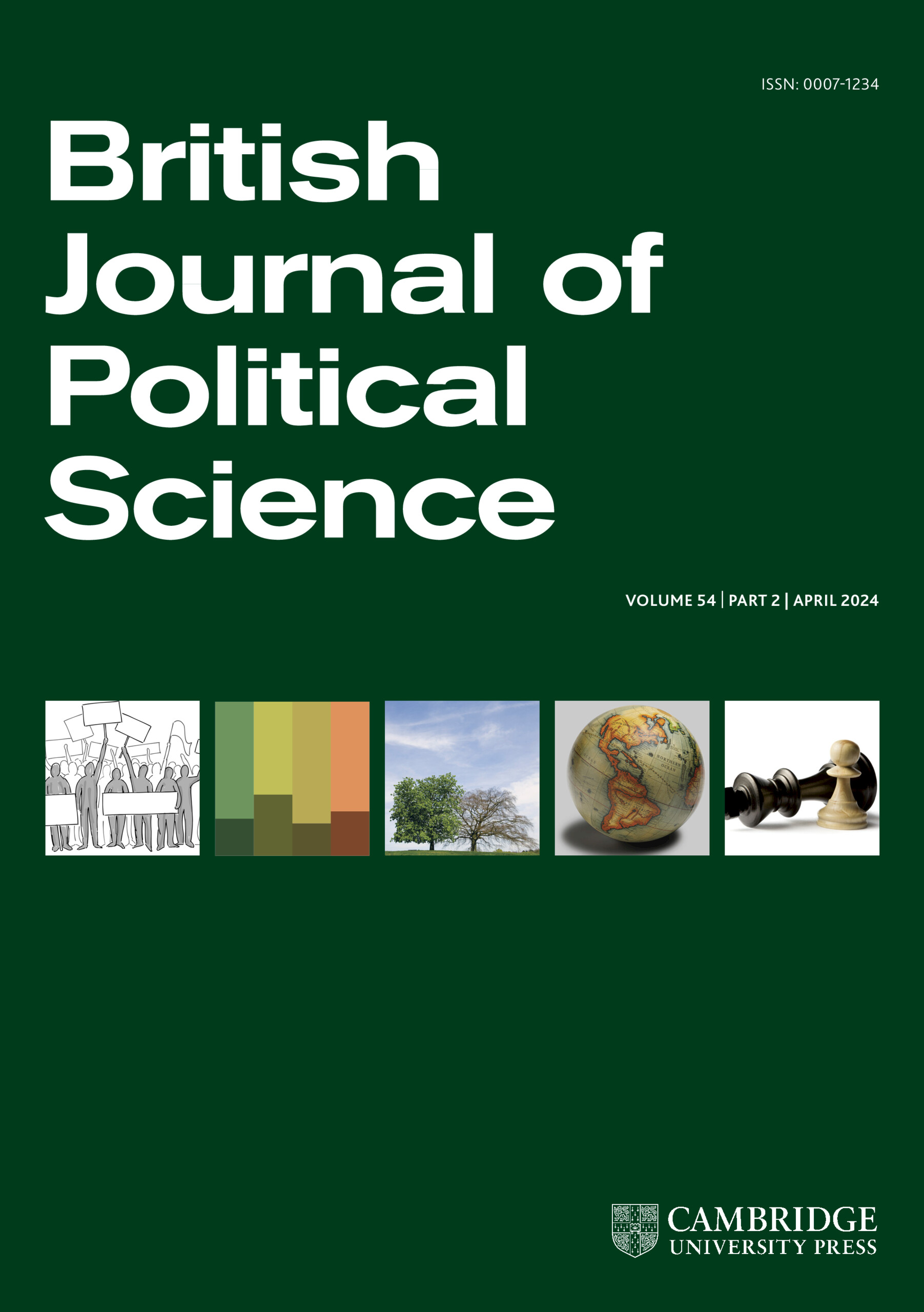经济冲击与移民态度的发展
IF 4.6
1区 社会学
Q1 POLITICAL SCIENCE
引用次数: 2
摘要
移民态度是如何形成的?根据政治社会化文献,我认为在经济衰退中长大会导致反移民态度的持续增加。我描述了两种机制,强调经济衰退对年轻工人的负面影响,以及经济动荡期间经常出现的反移民叙事。年轻人特别容易受到这些外部冲击的影响,因为他们的政治经验很少,而且正在发展他们的核心政治态度。欧洲社会调查提供的证据支持了这一论点。青年时期的经济冲击导致反移民态度显著增加,这是其他年龄段所没有的关系。我发现初步证据表明,在经济衰退中长大对移民的种族和文化层面有更大的影响,并引起更广泛的反社会反应。研究结果强调了经济危机如何影响年轻人的社会化,并强调了其持久的政治后果。本文章由计算机程序翻译,如有差异,请以英文原文为准。
Economic Shocks and the Development of Immigration Attitudes
How do immigration attitudes form? Drawing on the political socialization literature, I argue that growing up in a recession causes a lasting increase in anti-immigration attitudes. I delineate two mechanisms that emphasize the negative consequences of recessions for young workers and the anti-immigration narrative that often emerges during economic turmoil. Young adults are particularly vulnerable to these external shocks because they have minimal political experience and are developing their core political attitudes. Support is provided for this argument with evidence from the European Social Survey. An economic shock during young adulthood causes a significant increase in anti-immigration attitudes, a relationship not found for other ages. I find tentative evidence that growing up in a recession has a larger effect on the racial and cultural dimensions of immigration and causes a broader sociotropic response. Results highlight how economic crises affect the socialization of young adults and underscore their lasting political consequences.
求助全文
通过发布文献求助,成功后即可免费获取论文全文。
去求助
来源期刊

British Journal of Political Science
POLITICAL SCIENCE-
CiteScore
8.70
自引率
4.00%
发文量
64
期刊介绍:
The British Journal of Political Science is a broadly based journal aiming to cover developments across a wide range of countries and specialisms. Contributions are drawn from all fields of political science (including political theory, political behaviour, public policy and international relations), and articles from scholars in related disciplines (sociology, social psychology, economics and philosophy) appear frequently. With a reputation established over nearly 40 years of publication, the British Journal of Political Science is widely recognised as one of the premier journals in its field.
 求助内容:
求助内容: 应助结果提醒方式:
应助结果提醒方式:


